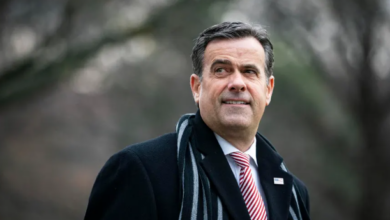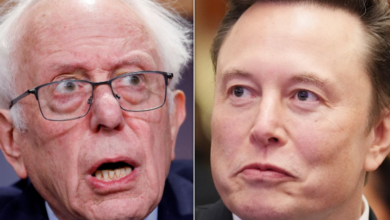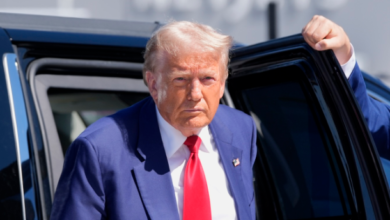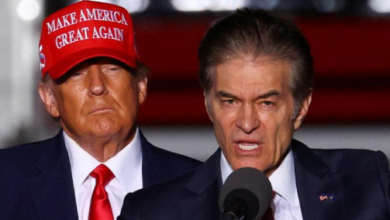American Muslims In The Midterms Aren’t Long-Shot Candidates Anymore


Abdelnasser Rashid was one of the dozens of American Muslims who ran for office in 2018.
It was dubbed the Muslim blue wave, where more than 90 American Muslims ran for office up and down the ballot, emboldened to push back against then-President Donald Trump’s hateful rhetoric and policies toward their community.
Rashid, a 33-year-old Harvard graduate, ran for his local county commissioner office but lost by 1% to the incumbent.
He didn’t give up. In 2020, Rashid ran for a position on Illinois’ Cook County Board of Review, a property tax administration role. He didn’t land that one either.
Now, Rashid is taking everything he has learned and making his third run ― this time for state representative.
During the 2018 midterms, American Muslims jumped into politics in record numbers. The candidates were mostly young, mostly inexperienced: long shots, in other words. Many of them didn’t run again after their losses, or left politics entirely.
But then there were candidates like Rashid, who hasn’t stopped fighting for his chance to formally serve in public office. Four years later, a number of American Muslim candidates are still running — now with years of experience under their belts.
“We’re seeing fewer long-shot candidates running and many more serious candidates running,” said Mohammed Missouri, the executive director of Jetpac, a nonprofit that works to increase Muslim representation in U.S. government and politics.
This time around, rather than running as a direct response to Trump, Muslim candidates are aiming for long-term gains with more diverse policy platforms. They have developed mature political strategies and are focusing on securing seats in local and state politics.
“It’s about running for positions where policy is being decided on a local level that impacts our community, and having a voice at the table and influencing those policies in a positive way,” Missouri said.
A record 181 candidates who identify as Muslim were on 2020 ballots across 28 states and Washington, D.C., according to a report by Jetpac, the Council on American-Islamic Relations and Mpower Change, a social justice organization. The report, released Wednesday, analyzes the 2020 campaigns of Muslim American candidates, 80 of whom were ultimately elected to office. By contrast, 49 Muslim candidates were elected to public office in 2019, and 57 were elected in 2018.
Rashid’s work in politics began years before Trump ran for president, in 2008, when he took a semester off from Harvard to work as a field organizer for Barack Obama’s general campaign in Michigan. After graduating in 2011, Rashid went on to work for an immigrant rights organization, helping pass immigration reform legislation at the state and federal levels.
He later joined Rep. Jesús García’s campaign as a field director when García, an Illinois Democrat, ran for mayor of Chicago in 2015. The following year, Rashid was the deputy state director for Vermont Sen. Bernie Sanders’ presidential campaign in Illinois.
After working in local politics in Cook County for four years, Rashid launched his county commissioner run in 2018, just barely losing to the incumbent.
“A heartbreaking loss like that is bittersweet, because on the one hand, you lost when it was just almost within reach,” Rashid said. “At the same time, it was so close that you feel like, ‘I can do this again.’”
Rashid did run again, for the spot on the Cook County Board of Review, but again was unsuccessful. He was unsure if he would run a third time. But motivated by his wife, his volunteers, and local leaders in the American Muslim community, Rashid set his eyes on the Illinois House of Representatives, aiming to represent District 21 as a Democrat.
“Being a Muslim woman, being a woman of color, you have to work 10 times harder. That’s just the reality of things. You might lose your first time, but that’s part of the journey.”
– Nabilah Islam
“There may be short-term setbacks, but there are learning opportunities,” he said. “It’s really important that we are doing this, because we know what we’re able to offer to voters, and we have a vision for how we want to see our government, our state, and our country look like.”
There are currently 29 Muslim state legislators across 18 states, according to Jetpac. New York and Minnesota, with three Muslim state legislators each, have the most of any state. Among the total group of 29, 26 are Democrats and one is a Republican. Only five of them were elected prior to January 2017. Twenty-four of those legislators are up for reelection next month, and most of them are expected to keep their seats.
Nabilah Islam is a progressive political operative sometimes called “Atlanta’s AOC,” in a nod to Rep. Alexandria Ocasio-Cortez (D-N.Y.). In 2020, Islam ran for Georgia’s 7th Congressional District. She secured the backing of Reps. Ilhan Omar (D-Minn.) and Ro Khanna (D-Calif.), and at one point had outraised many of her six Democratic opponents.
But it wasn’t enough. After her loss, Islam quickly endorsed her rival, urging others to do the same, and went on to campaign for her.
“Working in Southern politics and also being a Southern Democrat, we are very familiar with our several losses over the years,” Islam said. “So while it was disappointing that I lost, it was not something that was unfamiliar to me.”
Islam, a daughter of Bangladeshi immigrants, wasn’t jaded. She says the experience made her more determined to cement her place in politics.
“When you’re not at the table, you’re on the menu,” she said. “I refuse to constantly be at the menu and not have our communities have decision-making power over their own lives.”
Islam is the Democratic nominee this November for Georgia’s state Senate District 7, a new seat creating during the redistricting process. She acknowledged that the work can be draining, but urged her fellow candidates from minority backgrounds not to give up.
“Being a Muslim woman, being a woman of color, you have to work 10 times harder. That’s just the reality of things,” Islam said. “You might lose your first time, but that’s part of the journey.”
“We definitely need more Muslim candidates to run for office up and down the ballot, especially when it comes to local governments, because so many of these issues affect our everyday lives,” she added. “It’s also about building a bench. Building that infrastructure is key.”
“There’s an actual pipeline of talented people who either work in public advocacy behind the scenes, or on campaigns, or run for office and succeed because they’ve actually built relationships over the last four years and built infrastructure, frankly, for themselves,” Missouri said.
Armed with experience and community support, Rashid is ready for another opportunity to serve. He is running in support of gun reform, abortion rights and lower property taxes. After two unsuccessful bids, he hopes this is the race that will give him the opportunity to influence the issues he cares about.
“Sometimes it means waiting,” he said. “Sometimes it means looking at a different opportunity.”
[ad_2]
Source link





